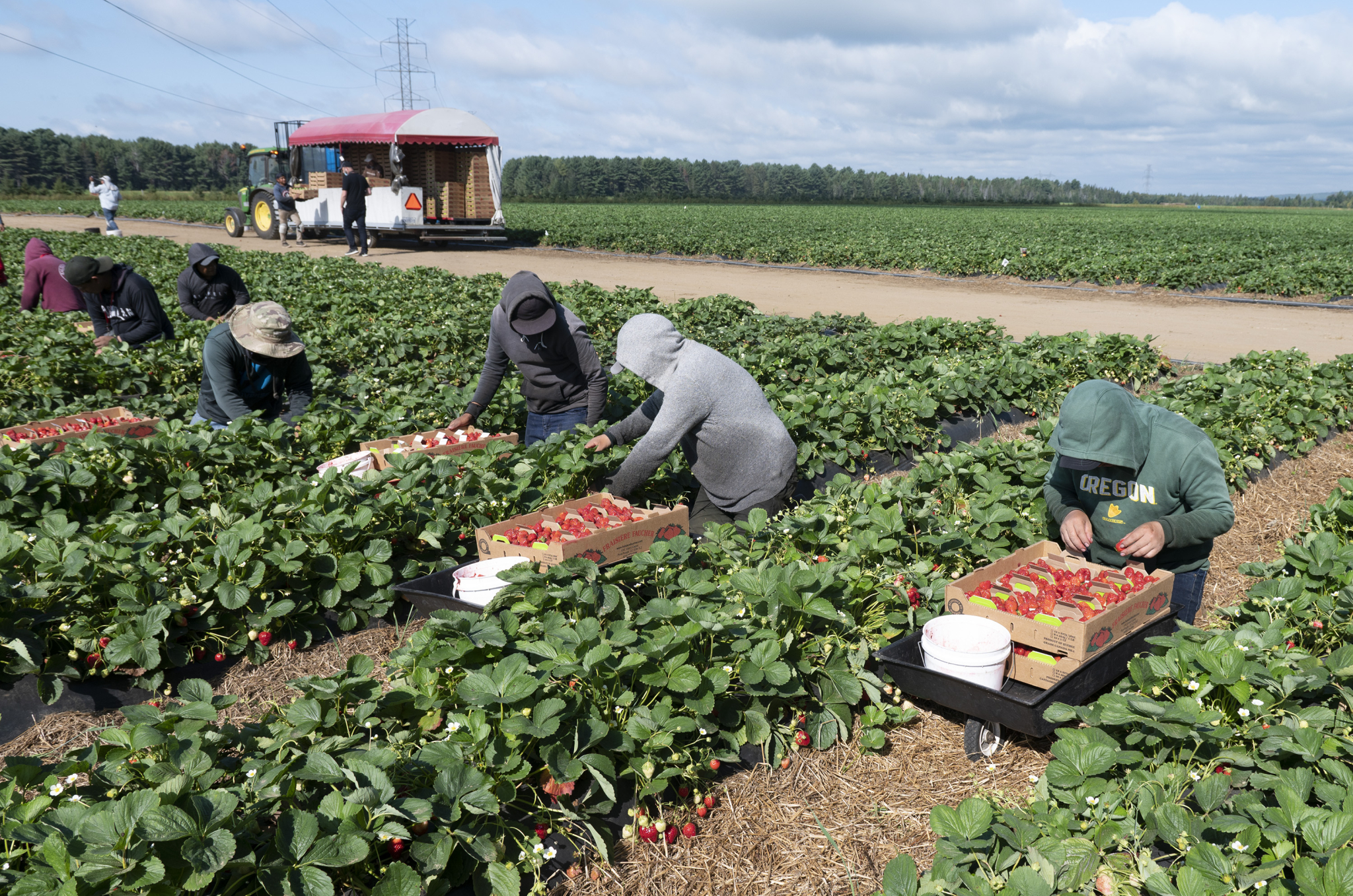A landmark ruling by the Human Rights Tribunal of Ontario found the province’s police force violated the rights of 54 migrant workers during a DNA collection sweep in 2013.
The Ontario Provincial Police collected DNA samples from dozens of migrant workers in the region following a sexual assault that year near Bayham, Ont. The victim described her assailant as a Black migrant worker with an accent, who was clean-shaven, in his mid- to late-20s and between five foot 10 and six feet tall.
However, “despite these additional physical descriptors, the police conducted a DNA canvass of all migrant workers in the area, regardless of whether they matched these additional physical descriptions of the suspect,” Marla Burstyn, the case adjudicator, wrote in her decision, which was released Thursday. The decision deemed the DNA sweep discriminatory and acknowledged the precarious immigration status of migrant workers, who can be fired or deported at any time by their employer.
One farm owner decided any workers who refused to take the DNA test would not be invited back next year, according to the ruling. That, in a nutshell, speaks to the power imbalance that exists between migrant farm workers participating in Canada's Seasonal Agricultural Worker Program (SAWP) and their bosses, Chris Ramsaroop, an organizer with Justicia for Migrant Workers, told Canada’s National Observer.
Importantly, the decision acknowledged structural racism is embedded in the migrant worker program, said Shane Martínez, the Toronto-based human rights lawyer representing the workers in the case.
“These acknowledgments about just how toxic and abusive the program is, I think, will definitely assist us in future cases,” Martínez told Canada’s National Observer.
This is the first human rights case in Canada to investigate allegations of systemic racial profiling and discrimination by police towards migrant farm workers, he said, adding that while the ruling is new, complaints about these issues are not.
“[Anti-Black racism] has been a fundamental part of [SAWP] since its inception in 1966, and it continues to play a prominent role to this day,” he said.
“This isn't an accident that workers are treated differently and adversely because of their race and where they're from. This is very much by design that workers are exploited when they come from the Global South to work here in Canada. The state benefits from it, the agriculture industry benefits from it. And this case, I think, just exemplifies how troubling this arrangement is and the need for us to take action and change it.”
While the decision is undoubtedly positive for migrant workers, it doesn’t address the underlying causes of the abuse migrant workers face, Jenny Kwan, NDP critic for immigration, refugees and citizenship, told Canada’s National Observer.
“What the NDP wants the government to do is provide all migrant workers with permanent resident status on arrival, so that when they land here in Canada, they have their rights and they're protected,” said Kwan.
In an emailed statement to Canada’s National Observer, Immigration, Refugees and Citizenship Canada’s communications officer, Jeffrey MacDonald said, “Everyone deserves a work environment where they are safe and their rights are respected. The safety of foreign workers is a key priority for the Government of Canada.” He then outlined measures from Budget 2021, including $110 million to “further strengthen safety and security of workers,” $54.9 million to increase inspections to ensure fair working conditions and wages and $6.3 million to improve open work permits for vulnerable workers.
Many of these so-called temporary or seasonal workers have been coming to Canada for decades, said Ramsaroop.
“They're part of our communities, but they're not seen as part of communities. They're simply seen as an extension of an employer, extension of a farm,” he said.
“We have criminalized this entire community all across rural Canada, and this decision is one way for the workers to basically speak out against that type of criminalization.”
Natasha Bulowski / Local Journalism Initiative / Canada’s National Observer







Comments